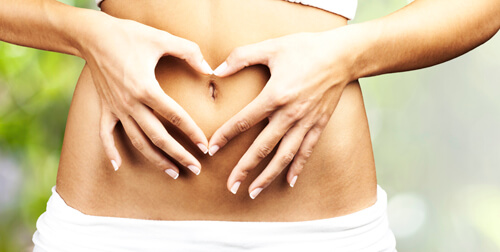Intestinal sanitation – the basis for regaining health
„Death is in the intestine – a sick intestine is the root of all evil, because this center supplies the entire body down to the smallest cell!“ Everyone knows that quotation. The words are attributed to the Greek doctor Hippocrates. They make it clear that a well-functioning intestine is the absolute prerequisite for our health.
The intestine not only ensures the absorption of operating materials and so our supply of energy, vitamins and trace elements. It is also responsible for the synthesis of vitamins and above all for the disposal of metabolic end products. With a surface area of 400 square meters, it is our largest organ, in which almost 80 percent of our immune and defense cells are located.
The imbalance of the intestinal functions is often the result of our eating habits. Too seldom do we eat real food, but mostly denatured, empty calories, which also completely overacidify the organism. In addition, there is the intake of medication that strongly promotes dysbiosis (disturbance of the balance of the intestinal flora) in the intestine, above all antibiotics and cortisone. And last but not least, lack of exercise, stress and alcohol or nicotine also bring the intestinal flora out of balance.
This dysbiosis does not necessarily manifest itself in intestinal disorders. It can also manifest itself in apparently completely different areas, such as allergies, skin problems, rheumatic complaints, etc.
Intestinal sanitation in the PRAXIS BELLADONNA
The bowel rehabilitation in my practice consists of several measures:
Detailed anamnesis
The anamnesis is the basic requirement for a successful therapy. Here I ask about all complaints, your diet, past and present medication and much more.
Furthermore, I check all scars on the body for possible interference field effects. This can considerably increase the success of the treatment, because scar interference fields can often represent therapy blockades.
Laboratory tests to examine the condition of the intestines are a great help in targeted intestinal rehabilitation.
There are two different tests available:
- Small intestine diagnostics using the CHROMATEST (capillary blood analysis)
- Stool analysis
We will discuss which laboratory test is recommended for you after taking your medical history.
The “species-appropriate” diet
The basis for a healthy intestinal environment is a healthy diet. I will discuss with you a suitable choice of food, the most favourable form of food preparation for you, the importance of the acid-base balance and much more. If you wish, an acid-base test (urine test according to Sander) can also be arranged.
Preparation for bowel cleansing
Depending on your state of health, in some cases we cannot begin colon cleansing straight away, but must first support the excretory organs – especially the liver and kidneys.
In any case, it is advisable to cleanse the intercellular tissue and bind any toxins present for at least two weeks before cleansing the bowel. Experience shows that this makes the treatment much more relaxed.
The cleaning of the small and large intestine
The treatment we use for this depends on your state of health and your goals.
We usually use the ‘Express Intestinal Treatment Premium’ or the ‘Intestinal Cleansing & Weight Loss’ set by the company REGENBOGENKREIS. These are very effective in ridding both the small and large intestines of deposits from stagnant stool containing putrefactive and fermentative substances, decayed mucous membrane residues, stored chemicals, worm nests and pathogenic intestinal fungi.
Thanks to this thorough cleansing, the intestine can once again fulfil its role as the largest excretory organ. As a result, the intercellular tissue is also freed from metabolic waste products deposited there.
You can perform the intestinal cleansing yourself at home within a few days.
Building a healthy microbiome
It is then advisable to support the development of healthy intestinal flora with appropriate probiotics (especially lactic acid-forming bacteria such as lactobacilli and bifidobacteria) and prebiotics (‘food’ for the desired intestinal inhabitants).
Please allow plenty of time for this: it should be at least 3 months, but often 9-12 months are necessary.
If necessary, an intestinal fungus diet can also be discussed.

